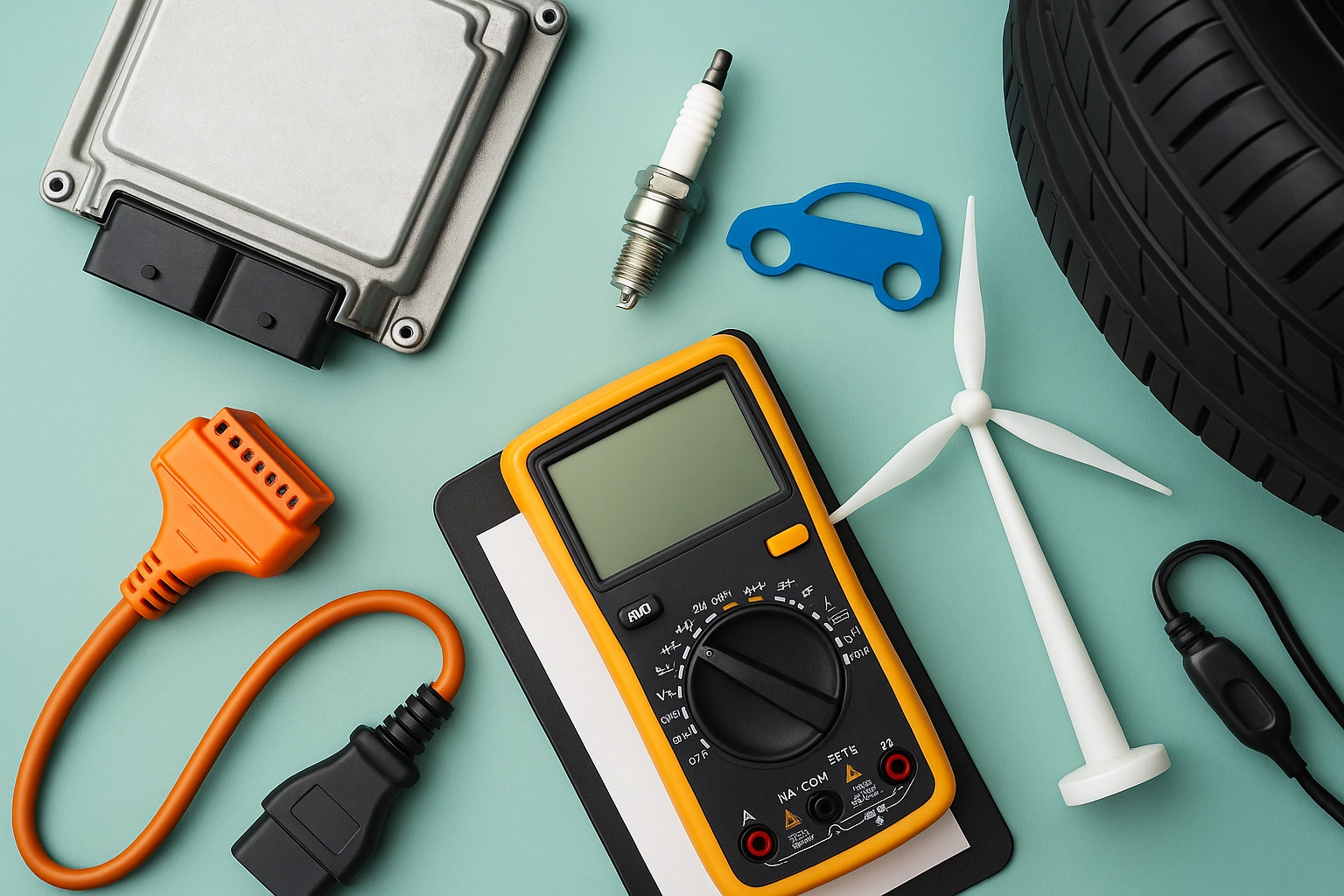ISO 21782 Hybrid and Electric Vehicle DC Power Test
The ISO 21782 standard is a crucial benchmark in the automotive testing sector, particularly for hybrid and electric vehicles (HEVs). This test ensures that the power delivery systems of these vehicles meet stringent reliability and performance criteria. The primary focus is on direct current (DC) power delivery to the battery and motor, which are critical components in HEV technology.
The standard specifies detailed procedures and acceptance criteria for testing DC power interfaces between the vehicle’s onboard charger, battery pack, and the high-voltage system. This ensures consistent and safe operation under various environmental conditions, including temperature extremes, humidity, and voltage fluctuations. Compliance with this standard is essential for manufacturers to ensure their products meet global regulatory requirements.
The test procedure involves connecting a controlled DC power source to the vehicle’s battery pack and monitoring the interaction between the charging system and the battery during both charge and discharge cycles. The acceptance criteria include specific thresholds for current, voltage, and temperature stability, as well as time-to-charge metrics under different conditions.
For manufacturers, this test is vital in ensuring that their HEV models are not only safe but also efficient in terms of power management. It helps identify potential issues early in the development process, thereby reducing the risk of recalls and improving overall product quality.
The standard has been widely adopted by automakers and suppliers to ensure consistent performance across different vehicle platforms. By adhering to ISO 21782, companies can demonstrate their commitment to safety and reliability, which is crucial in an increasingly competitive market.
This test plays a significant role in the broader context of automotive testing, where electric vehicles are becoming more prevalent due to environmental concerns and technological advancements. The standard’s emphasis on DC power delivery ensures that these vehicles can operate efficiently under various conditions, enhancing their appeal to consumers.
Scope and Methodology
| Test Parameter | Description |
|---|---|
| Battery Pack Testing | Testing the battery pack’s ability to withstand DC power delivery under various conditions, including charging and discharging. |
| Charging System Evaluation | Evaluating the performance of the onboard charger in delivering consistent DC power to the battery. |
| High-Voltage System Interaction | Assessing the interaction between different components of the high-voltage system during power delivery. |
The test methodology involves connecting a controlled DC power source to the vehicle’s battery pack and monitoring various parameters such as current, voltage, temperature, and time-to-charge. The acceptance criteria are based on international standards like ISO 21782, ensuring consistency across different testing environments.
This approach ensures that the test results are reliable and can be replicated in different laboratories around the world. By adhering to these standards, manufacturers can ensure that their HEV models meet both internal quality control requirements and external regulatory demands.
Industry Applications
- Manufacturer Quality Control: Ensuring consistent performance of the power delivery systems across different vehicle models.
- Regulatory Compliance: Demonstrating adherence to global standards for HEV and EV safety and reliability.
- R&D Optimization: Identifying potential issues early in the development process, improving product efficiency.
- Supplier Evaluation: Assessing the quality of components used in HEVs, ensuring they meet high standards.
The ISO 21782 test is particularly valuable for manufacturers and suppliers working on electric and hybrid vehicle projects. By following this standard, companies can ensure that their products are not only safe but also efficient, which is crucial in an increasingly competitive market.
This testing plays a vital role in the broader context of automotive testing, where electric vehicles are becoming more prevalent due to environmental concerns and technological advancements. The standard’s emphasis on DC power delivery ensures that these vehicles can operate efficiently under various conditions, enhancing their appeal to consumers.
Quality and Reliability Assurance
- Consistency: Ensuring consistent performance of the power delivery systems across different vehicle models.
- Reliability: Demonstrating that the vehicles can operate reliably under various environmental conditions.
- Safety: Identifying potential issues early in the development process, improving product safety.
- Efficiency: Ensuring efficient power management, reducing energy waste and extending battery life.
The ISO 21782 test is designed to ensure that HEVs meet stringent reliability and performance criteria. By adhering to this standard, manufacturers can demonstrate their commitment to safety and efficiency, which is crucial in an increasingly competitive market. The test helps identify potential issues early in the development process, improving product quality and reducing the risk of recalls.
The acceptance criteria for this test are based on international standards like ISO 21782, ensuring consistency across different testing environments. This approach ensures that the test results are reliable and can be replicated in different laboratories around the world. By adhering to these standards, manufacturers can ensure that their HEV models meet both internal quality control requirements and external regulatory demands.





